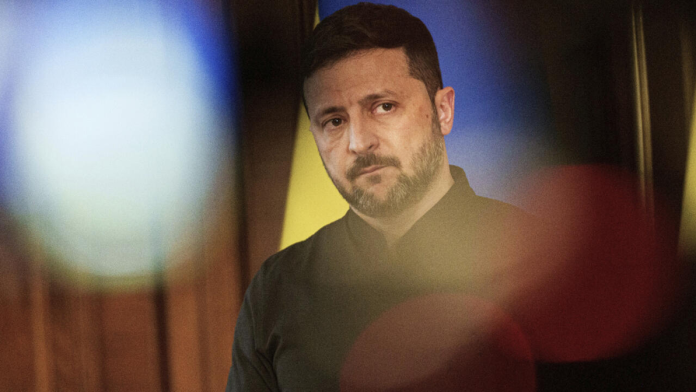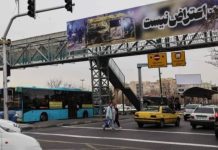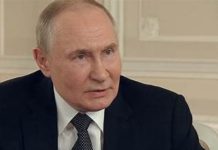Russia has also demanded that Ukraine be barred from joining the NATO military alliance and has repeatedly said it wants Zelensky removed from office
ISTANBUL, MAY 15 (AFP/APP/DNA):Delegations from Kyiv and Moscow are set to hold their first direct talks on the possibility of ending the war in Ukraine for more than three years.
Ukraine’s Volodymyr Zelensky has announced he will travel to Turkey, while Russia’s Vladimir Putin indicated he will not attend the talks.
Despite the flurry of diplomacy and US President Donald Trump’s call for a swift end to the fighting, Moscow and Kyiv’s demands appear to be far apart.
Russia has repeatedly demanded to keep the territory in southern and eastern Ukraine that it occupies and for Kyiv to cede even more land.
Moscow in 2022 annexed four Ukrainian regions — Donetsk, Lugansk, Zaporizhzhia and Kherson — despite not having full control over them.
Russia also annexed the Crimean peninsula from Ukraine in 2014 and has held it ever since.
President Vladimir Putin last year demanded Ukraine pull its forces out of parts of those regions that its army still controls as a prerequisite to any peace settlement.
Russian Foreign Minister Sergei Lavrov has said recognition of Moscow’s ownership of these territories was “imperative” for any negotiations.
Kyiv has said it will never recognise its occupied territories, including Crimea, as Russian.
But Ukrainian President Volodymyr Zelensky has said Kyiv may be forced to try to secure their return through diplomatic means — effectively conceding that Russia could maintain control over some land in any peace deal.
Russia has also demanded that Ukraine be barred from joining the NATO military alliance and has repeatedly said it wants Zelensky removed from office.
Russia had intended to topple Zelensky when it launched its invasion in 2022, with Putin calling in a televised address for Ukraine’s generals to oust him in a coup d’etat and then open talks with Moscow.
Putin in March floated the idea of Ukraine being put under a UN-backed “temporary administration”, refreshing his call to essentially remove Zelensky.
Russian officials have throughout the war called for the “de-militarisation” and “de-Nazification” of Ukraine — casting Kyiv as a neo-Nazi “regime”.
Kyiv, the West and independent experts have rejected those narratives.
Russia has also sought at times to limit the size of Ukraine’s army, wants Ukraine to be declared a neutral state and for Western countries to stop supplying it weapons.
Zelensky has for months been calling for “security guarantees” for Ukraine to stop Russia invading again.
His top demand would be for Ukraine to be admitted to NATO, or for Ukraine to fall under the military alliance’s Article Five collective defence term.
Trump has however, dismissed the possibility of Ukraine joining the bloc and Russia says NATO membership would be “unacceptable”.
Instead, Kyiv is pushing for some other form of Western military commitment that would deter Moscow.
Britain and France are leading discussions about a possible European troop deployment to enforce any ceasefire, among a group of countries dubbed the “coalition of the willing”.
But Zelensky and Kyiv still want Washington to back-up any “security guarantee”.
Moscow has said it would not accept troops from NATO countries being deployed to Ukraine in any capacity.
Zelensky wants an immediate, full and unconditional ceasefire to cover combat on air, sea and land.
He accepted a US proposal for that in March but Putin rejected it.
Putin has instead ordered two short “truces” — over Easter and to cover Russia’s May 9 Victory Day celebrations.
Air attacks dipped during the periods but Ukraine accused Moscow of violating both on hundreds of occasions.
In his late-night address from the Kremlin calling for the direct Russia-Ukraine talks, Putin said he did not “exclude” that some kind of ceasefire could be agreed between the sides.

















